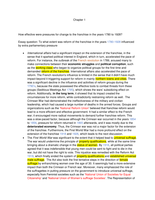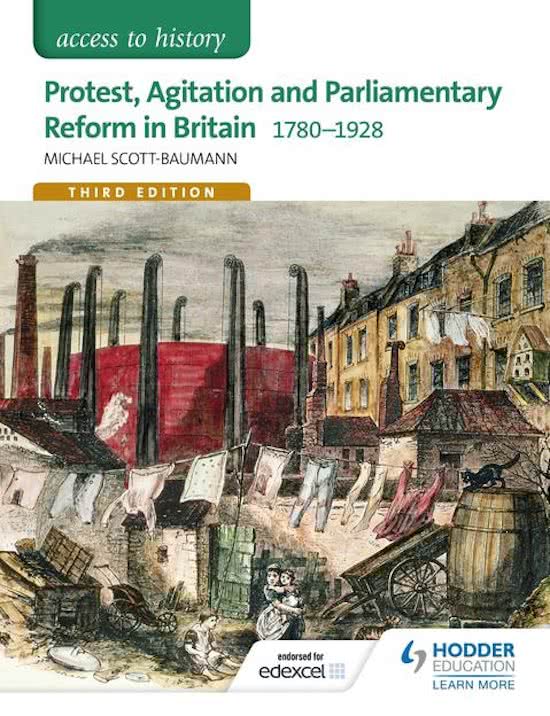Chapter 1
How effective were pressures for change to the franchise in the years 1780 to 1928?
Essay question: To what extent was reform of the franchise in the years 1780-1928 influenced
by extra parliamentary pressure
International affairs had a significant impact on the extension of the franchise, in the
sense that it sparked political interest in England, which in turn, accelerated the pace of
reform. For instance, the outbreak of the French revolution in 1789, aroused many to
make connections between their economic struggles and political corruption, such
as the working class who began to organize political groups for the first time and
demanded reform of the franchise. International affairs also accelerated the pace of
reform. The French revolution's influence is limited in the sense that it didn't have much
impact beyond it triggering support for reform in mainly northern towns and cities. There
was a significant decline in the influence and activities of reform groups during the
1790’s, because the state possessed the effective tools to combat threats from these
groups (Seditious Meetings Act 1795), which shows the wars’ subsidizing effect on
reform. Additionally, in the long term, it showed that its impact created the
circumstances for more reform, while contradictorily restraining reform as well. The
Crimean War had demonstrated the ineffectiveness of the military and civilian
leadership, which had caused a large number of deaths in the armed forces. Groups and
organizations such as the ‘National Reform Union’ believed that franchise reform would
lead to a more efficient and effective government. It had a similar effect to the French
war; it encouraged more radical movements to demand further franchise reform. This
was a slow-paced factor, because although the Crimean war occurred in the years 1854
to 1856, pressure for reform returned in 1865 afterwards, and it was mostly due to the
deteriorated economy. Thus, the Crimean war was not a major factor for the extension
of the franchise. Furthermore, the First World War had a more profound effect on the
extension of the franchise 1918 and 1928, which leads to the next discussion.
The First World War was significant to the extent that it helped lead to universal suffrage.
The war would undermine the principle of property qualifications, while at the same time
bringing about a dramatic change in the status of women. By 1916, all political parties
agreed that it was indefensible that young men could be sent to fight and to die in the
war, but did not have the right to vote. This injustice was remedied with the Reform Act
1918, which finally ended the system of property qualifications and established universal
male suffrage. The Act also took the first tentative steps in the direction of female
suffrage by enfranchising women over the age of 30. It seemingly had a more extensive
impact than both the Crimean or French war. Moreover, many emphasized the role of
the suffragettes in putting pressure on the government to introduce universal suffrage,
especially from Feminist societies such as the ‘National Union of Societies for Equal
Citizenship’ and ‘National Union of Women’s suffrage Societies’. The Representation of





